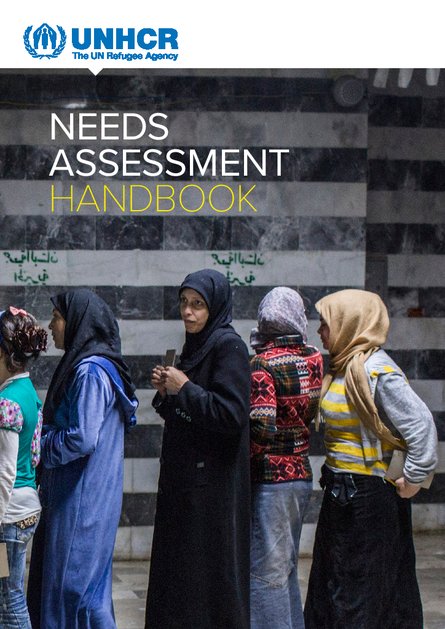
This handbook represents the first guidance UNHCR has produced on needs assessment that applies to all sectors, situations, methods and populations of concern. Although the Handbook should not be considered policy, it serves the similar purpose of committing the Office and its staff members to a set of global principles, objectives, standards, and guidance from across UNHCR and operationalizes the IASC Operational Guidance on Coordinated Assessments in Humanitarian Crises.
With this Handbook, UNHCR seeks to build on its strengths and core mandate to ensure that the centrality of protection is mainstreamed in all needs assessments. For a humanitarian response to be protection-oriented, it is essential to understand and seek to prevent, mitigate, and/or end actual and potential risks. This requires a continuous analysis of the needs, risks, threats, vulnerabilities, and capacities of affected persons on the one hand, and of the commitment and capacities of duty bearers to address risk factors on the other. Such an analysis provides the evidence base for programming, advocacy, and other activities that aim to change behaviours and policies in support of a more favourable protection environment and better protection outcomes.